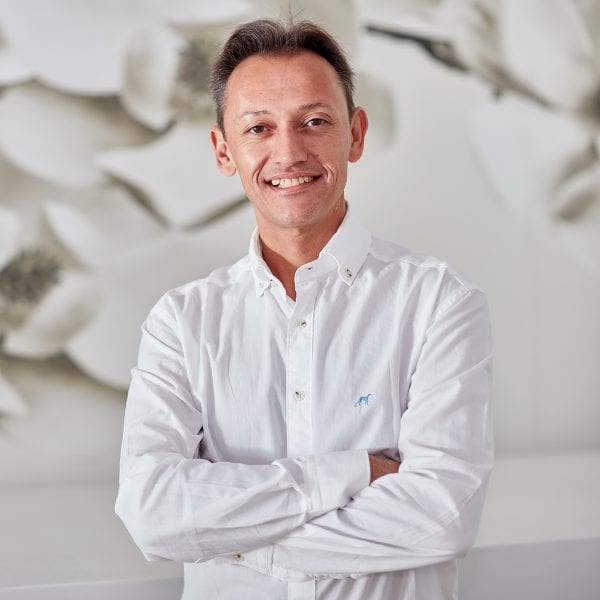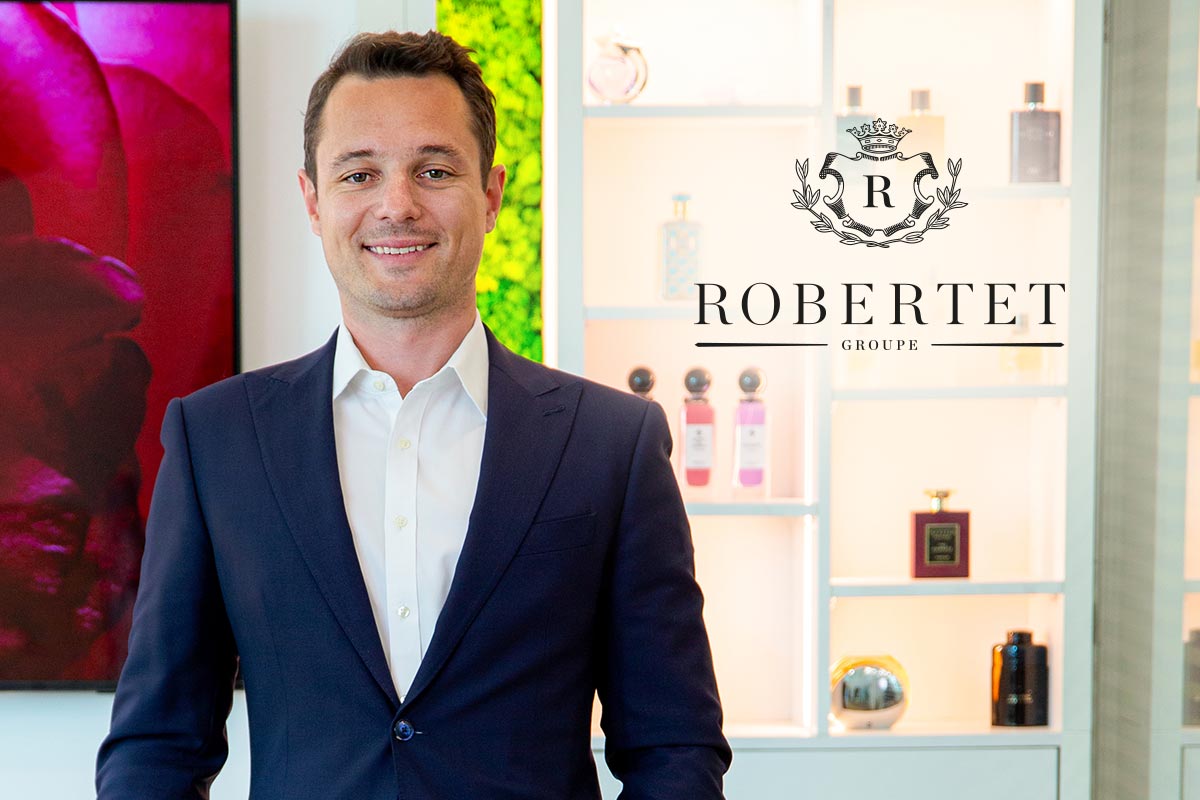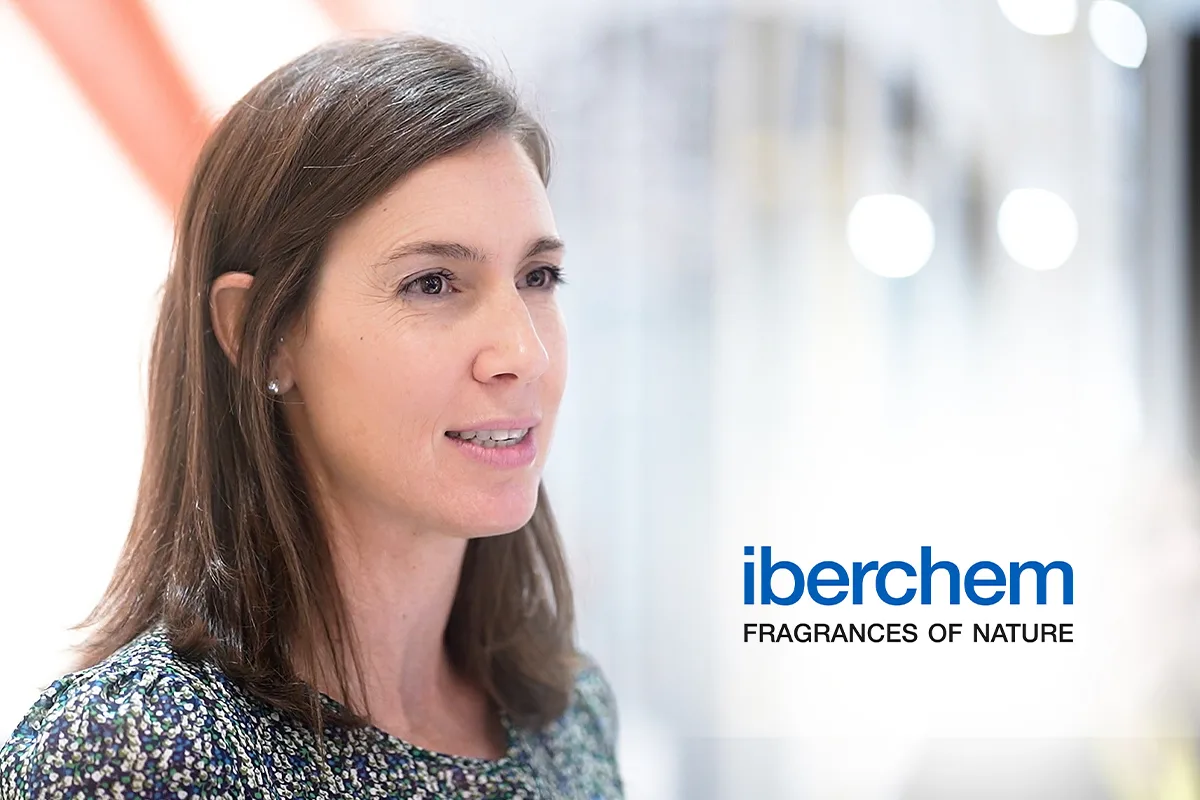With an outstanding growth of 17% in 2018, CPL Aromas is probably placed as number 7 in the world as a fragrance house and it definitely looks like it wants to go much further. Chris Pickthall, CEO of CPL Aromas, seems to be a man on a mission and in this conversation he discusses the growth of CPL Aromas, the way ahead and also the legacy of his brother, Francis Pickthall.
ParfumPlus (PP): In the last one year, many significant changes, new schemes, launches, acquisitions have taken place in CPL Aromas. You seem to be in a hurry while everyone else is playing the calm game.
Chris Pickthall (CP): 2018 was a very busy year for CPL Aromas. We grew sales by 17%, which took a lot of investment and managing. As you can see, that’s a significant growth figure and the main issue that we had to contend with was the availability and the pricing of raw materials. Many of our biggest and most important raw materials either went up significantly in terms of pricing, or their availability was restricted. I was very pleased with the way CPL Aromas handled the crisis. We were very quick and nimble, we got into the market early and stocked up. We kept all of our customers supplied throughout the year.
PP: Please do let us know about the last one year and especially about the recent acquisition of Spanish Manufacturer dM Fragrances.
CP : This was a great acquisition that we made in 2018. The background to this was Brexit. As a UK headquartered company with a European factory based in the UK, we are very exposed by Brexit. It is very difficult to have a complex problem such as Brexit, where you don’t know what the rules are. I think it’s been three years since the referendum and still there’s no information as to, if we are leaving, when we are leaving, on what terms or basis are we leaving and so like many British companies we had to take things into our own hands.
This led us to buying dM fragrances, which is now rebranded as CPL Aromas Spain, based in Barcelona. We have invested significantly in the team and the facilities, have put in automatic compounding and are now ready to manufacture all of our European productions in Spain.
It is very interesting how a problem has turned into an opportunity for CPL Aromas and we now have access to new markets, new customers we were not serving before, predominantly in Spain.
This has created capacity in our UK factory and we have recently acquired a fragrance business in the UK called AFF. We have put that production into our UK facility which has brought in some new terrific employees and some fantastic customers. So it is interesting how Brexit has resulted in two acquisitions, a nice growth in turnover, new customers and a new team of people.
PP: Digitalisation in Perfumery is inevitable but there are different methods of how the industry is adapting. What are the different options that CPL foresees for the industry? Are there any concrete steps that CPL is taking in this direction?
CP : We have done a number of things. The big thing we focused on initially was how quickly and differently the retail market is changing across the world and how consumers are changing the way they buy many things, including fragrances. We have tried to identify a lot of digital customers around the world, which tend to be new startups or new companies and we are very focused on trying to work closely with those.
We have actually invested in our own startup which we will hopefully be launching later in the year. We are also working really closely with another customer, which is very much a pure digital play.
Internally, we are trying to use what is going on in digital and artificial intelligence (AI) to change the way we sometimes create fragrances, certainly to be more informed about fragrances we select for customer projects by using all the AI and digital techniques that are available.
PP: Tell us something about the recent fragrances that CPL Aromas is working on?
CP : We have got so many projects that are active in so many countries and major markets such as China, India, Europe, South America and most projects tend to be very confidential. So it is really difficult to elaborate too much apart from that.
PP: Being a ‘fragrance only’ organisation, how is your business positioned differently from the other organisations?
CP : Being fragrance only allows us to focus and really become absolute experts in fragrance without distractions of other product areas such as flavours or raw materials. But what really sets us apart is the way we position ourselves. We are probably number seven in the world when it comes to fragrance turnover, but uniquely within the top ten we do not focus on the largest multinational buyers of fragrances who are the biggest buyers. We do not sell to them or aspire to sell to them.
Instead, we sell to the emerging multinationals, to the private labels, to the national brands, to the contract manufacturers, to the niche fragrance brands and to many such customers. That’s our focus, that’s our target customer. Which means that the best resources that we have like research and development, our automated production, regulatory and technical expertise, we focus all of this on these target customers.
PP : Sustainable Fragrance Innovation : What does this mean to you and to the organisation?
CP : This is a very big term, it is a massively important subject integral to our business and we have tried to be very specific about how we are addressing it. We have just published our first ever sustainability report as a company which lays out the goals we are trying to follow.
In terms of fragrance creation, we are doing a lot of work in sourcing sustainable ingredients, mainly essential oils. We have also developed some partnerships with various growers and farmers from around the world. We have had a big push into natural fragrances which has been a major focus for us.
But it also goes beyond this in terms of sustainability, in terms of things like putting solar panels on many of the factories and doing as much as we can in order to operate in a sustainable way by using less packaging, to encourage our customers to move to the biggest pack sizes to cut down on packaging.
And then in terms of other developments in the wider world, we set up a COFVI (The College of Fragrance for the Visually Impaired) in Mumbai a few years ago which has been a fantastic initiative. We continue to work passionately with CAFOD, our chosen charity around the world, who are helping the poorest of the poor. We have given a record donation to CAFOD in 2018 of four hundred and fifty thousand pounds. So all of these things, come together to form our sustainability platform.
PP : Tell us about Ecoboost an innovative concept pioneered by CPL Aromas, how is it aligned with your idea of sustainable fragrance innovation?
CP : We think that Ecoboost is the absolute perfect concept and innovation for sustainability. We actually launched it about 7 or 8 years ago, and it’s really a concept whose time has come. It’s a concept that allows our customers to use ten times lower dosage than they traditionally used, which from a sustainability point of view, gives them a real sustainable advantagel. If a customer is using ten times less fragrance, then the customer has got real benefits in terms of packaging, transport and emissions. In terms of other fragrance benefits there’s less problems with interaction with the base and from an affordability point of view, it’s never 10 times more expensive so the customer always saves money by moving to an Ecoboost fragrance.
PP : Aromaguard : What is this concept wherein CPL Aromas claims to reduce malodours?
CP : So Aromaguard is malodour counteractancy where we target various different malodours and reduce that malodor by 70%. We are able to measure this so that if the malodours has not been reduced by 70%, it will not get the AromaGuard label. This is used in a wide range of applications from kitchen malodors to tobacco to sweat to urine to things like depilatory creams and many more applications. We have had AromaGuard on the market for a number of years and are constantly updating it, retesting and launching new fragrances, doing more innovation and more research.
PP : Research and Development : What is your investment in this? How do you identify aspects that need to be prioritised?
CP : So in terms of investments around the world, it’s significant. All our divisions around the world have their own research and development chemists working on new developments and new innovations. In the UK, a couple of years ago we opened a new dedicated research and development facility that is there to support and develop all our concepts around the world.
In terms of developing new concepts, it is mainly done by talking to our customers around the world, finding out what their needs are, what the market developments are, looking at the market and seeing what’s going on, seeing something like sustainability and how that can align with our EcoBoost concept and just trying to be aware of what’s happening in the marketplace.
PP : As an organisation how do you approach or see perfumers? Considering their creativity is underplayed and they are so much behind the scenes and except for a few who are in the limelight it’s normally a job that’s ironically devoid of glamour. How do you motivate them and their creativity?
CP : I am not sure it’s that devoid of glamour, I think we have got glamorous perfumers at CPL. We have got 25 creative perfumers around the world and they are the lifeblood of our company. We are forever developing our perfumers, training graduate perfumers, recruiting experienced perfumers from the market, it’s what we are as a company. We are a creative fragrance company and are always investing in our perfumers.
Every other year we have a global perfumers conference. For the last one we went to Sicily with a team of 40 people where we saw bergamots and mandarins being grown and processed into oil that the perfumers will eventually use in their creations. And before that we went to India for a similar outing. We are constantly getting the team together, investing in all of our teams and adding to our learnings.
PP : The passing away of Francis Pickthall was surely a huge personal loss to you and your family. How is the company coping with it. Please share with our readers the legacy that he leaves behind in CPL Aromas.
CP : It was a massive and monumental tragedy for the family and the company. Being a family company, it’s at times difficult to divorce the two.
Francis was the person I have spent the most amount of time in my life with. Most mornings in Dubai, we had a coffee to start the day together. The loss to the family is huge. The three brothers, Francis, Nick and myself, used to run the company together and now Nick and I run the company together.
The loss to my parents, the loss to his widow and his children is huge. For the company, the loss is absolutely massive. Francis leaves a huge legacy at CPL. Everything we have achieved over the past 40 years, so much of it is down to Francis be it customers, perfumes, branding or new innovations.
He started off at CPL as a creative perfumer and ended it running branding, corporate communications and marketing and looking after customers all around the world.
But the biggest legacy Francis leaves is that we have a really nice company, which has a beautiful family culture. Francis was an exceptionally nice man, kind man, honest man and people referred to him as a gentleman and I think that’s the biggest legacy he leaves at CPL. The culture we have at CPL as a company is thanks to Francis.
PP : A brief insight into the way ahead for CPL Aromas
CP : There is so much going on. In 2018 we grew sales by 17% and whether we can do that in 2019 and beyond will be a challenge but we will certainly try. But there is a lot of investments going on around the world in terms of new facilities, more automation, more investment in teams and more investment in the global fragrance market.
But our big focus as a company is to grow, to get bigger, more professional and smarter. But at the same time remain family owned, to remain independent and to keep that kind of, in many ways, almost ‘small company culture’, where we are quick, where we react to customers, where we deliver really quickly and not allow ourselves to get too bureaucratic or act or think like a very big company. We want to try and keep the ‘small company culture’ whilst getting big.








